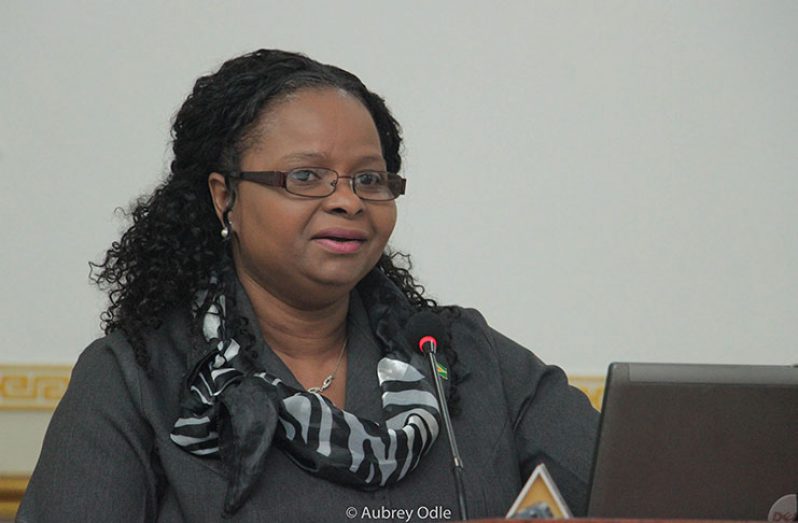— Lawrence World Health Assembly round-table discussion
GUYANA, at a round-table discussion on sustainable financing of universal health coverage,has recommended that stronger efforts be made by Commonwealth countries to revise financing at national levels, so that health could be positioned as a top priority for funding.
Public Health Minister Volda Lawrence in her deliberations at the World Health Assembly’s round-table discussion, said there should be targeted allocation of resources to address the growing shortage of health workers.
She also noted the need for management of resources in both the public and private health sectors efficiently, as countries move to achieve the goal of Universal Health Care (UHC) by 2030.
She told the grouping of primarily Commonwealth health ministers that “ensuring rigorous financial management with pooled health funding (from taxation of unhealthy and harmful products, along with contributions from populations through health insurance and contribution schemes ‘who can pay, should pay’) will allow us to ensure that there is sustainable health coverage.
“In Guyana, we have advanced the process of ensuring more funding is allocated to health, but even now these remain inadequate and we depend on donors.”
Moreover, the public health minister said it is known that creating awareness with regard to social determinants of health, promoting health at all levels of the community; ensuring that healthy public policies are in place; and developing and implementing innovative approaches that work, along with a public/private mix that address the high-end needs can arrest the escalating demand faced by countries.
In acknowledging the work of the Commonwealth Foundation and the report on Hybrid Funding Strategy, Lawrence said delivering adequate health care and providing the key elements of UHC to all has always been a challenge for developing countries with limited resources and underdeveloped systems.
“Universal Health Coverage is captured in the mandate of my ministry in Guyana, as ‘the right of all to medical and health care.’ It requires adequate health financing, an efficient health workforce, all the essential medicines and health products being in place; that health policies are developed and implemented; health statistics and information are collected, analysed and used in planning, and that a high quality of service is delivered to our people safely,” she added.
The minister said resources allocated from the national budget is “almost always inadequate to fulfil all these UHC elements, and through our international donor partners and friends, we are sometimes barely able to address some of the shortfalls in our budget.”
She noted that global support continues to shrink and “we now are forced to curtail our essential package of health care services to address all these needs.”
These shortfalls, she said, coupled with the growing demands for advanced and expensive health services, such as cardiac and neuro surgeries, cancer treatment, long-term medical treatments and rehabilitation are needed to respond to life- style type medical conditions related to the broad social determinants of health such as NCDs, accidents and violence, which leave “us to make hard choices, and ration limited resources away from the most vulnerable in our society.”



.jpg)









